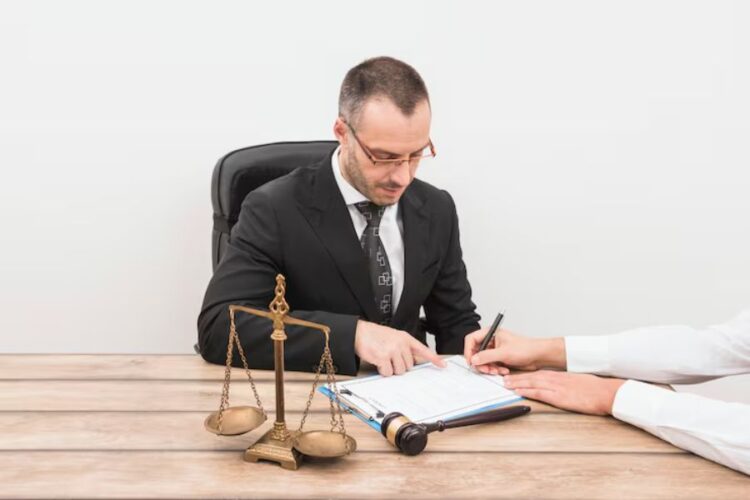Do personal injury lawyers go to court? The answer isn’t always clear-cut. While it’s true that the vast majority of personal injury cases are settled outside of court, certain situations may force your case to trial. Understanding the reasons behind this decision, the steps involved, and the pros and cons of both court and settlement can empower you to make informed decisions about your legal journey.
In personal injury law, the goal is always to secure compensation for the injured party. Most of the time, personal injury lawyers will aim for an out-of-court settlement with the defendant or their insurance company to avoid the stress and costs of a trial. However, in cases where negotiations break down or liability is contested, a court trial may be the only viable option. This article explores when and why personal injury lawyers take cases to court, and how you can make the best decision for your situation.
Do personal injury lawyers go to court?
Personal injury lawyers typically aim to settle cases outside of court to save time and money. However, if a fair settlement can’t be reached or there are disagreements over the claim’s value or who is at fault, the case may go to court. Trials can help ensure that the injured party receives a fair amount of compensation.
The Reasons Personal Injury Lawyers Take Cases to Court
In personal injury cases, going to court is often a last resort. Most cases are settled through negotiation, but when parties cannot agree on fault or compensation, litigation becomes necessary. The factors that lead to a trial can be varied, but they often involve serious disagreements over liability or the amount of compensation.
One of the most common reasons a personal injury lawyer would take a case to court is a dispute over who is responsible for the injury. If the defendant denies liability or claims that the plaintiff was partially at fault, the case may require legal intervention. A trial helps clarify the facts, presenting evidence that can establish fault.
Another significant factor is the value of the damages. Insurance companies often offer settlements that don’t cover the full extent of the plaintiff’s injuries, lost wages, or pain and suffering. If the offer is unfair or the insurance company is unwilling to negotiate, litigation may be necessary to obtain a fair settlement.
In some instances, the complexity of the law or the number of parties involved can also make settlement difficult. Complex legal issues, such as contributory negligence or multiple defendants, may require a judge or jury to render a formal decision. If you’re in Lebanon, a Lebanon personal injury lawyer can provide local expertise to guide you through this process.
When Does a Personal Injury Lawyer Choose to Go to Court?
Key Scenarios Where Litigation Is Necessary
While settlement is usually the preferred route, certain situations can force a lawyer to consider going to court:
Reasons for Litigation:
- Liability Disputes: When the defendant contests fault or attempts to shift blame, the case may require litigation to establish who is responsible for the injury.
- Disagreement Over Compensation: If the injured party and the insurance company cannot agree on a reasonable settlement amount, a trial may be needed to secure a fair settlement.
- Lowball Offers from Insurance Companies: Insurers often make offers well below what the victim deserves. If these offers aren’t negotiated fairly, litigation may be the only way to get the compensation you need.
- Complicated Legal Issues: Cases involving multiple defendants or complex medical details can complicate negotiations, necessitating a trial.
How Do Personal Injury Lawyers Prepare for Court?
Before a personal injury lawyer takes a case to court, thorough preparation is required. This ensures that all arguments are supported by solid evidence.
- Gathering Evidence: Lawyers will collect police reports, medical records, and witness statements to support their client’s claim.
- Expert Witnesses: In complex cases, expert witnesses may be used to explain technical aspects, such as medical evaluations or accident reconstruction.
- Depositions: Lawyers may conduct depositions to get sworn testimony from witnesses, which can later be used in court.
Pros and Cons of Going to Court for a Personal Injury Case
(400-500 words, Active Voice)
Deciding whether to settle or go to court involves weighing the risks and rewards.
- Pros of Going to Court:
- Potential for Higher Compensation: A jury might award a higher amount than the settlement offer.
- Public Accountability: Going to court can hold the defendant publicly accountable for their actions.
- Setting Precedents: A successful case can set a legal precedent that helps others facing similar situations.
- Cons of Going to Court:
- Uncertainty: Trials come with no guarantees. There’s a chance the case could be lost, and no compensation would be awarded.
- Time-Consuming: Trials can take months or even years to resolve, delaying compensation.
- Costly: Legal fees, expert testimony fees, and court costs can quickly add up.
- Stress: The emotional and mental toll of going through a lengthy trial can be significant for both the client and the lawyer.
The Role of Your Personal Injury Lawyer in Court
How Lawyers Navigate the Court Process
Personal injury lawyers play an essential role in the courtroom by guiding clients through the litigation process. Their responsibilities include:
- Filing the Complaint: This begins the legal process by outlining the plaintiff’s claims against the defendant.
- Discovery Process: Lawyers gather evidence through depositions, interrogatories, and document requests to build a strong case.
- Jury Selection and Presentation: In cases that involve a jury, your lawyer helps select jurors and presents the case during the trial.
- Closing Arguments and Post-Trial: After presenting the case, your lawyer delivers closing arguments and works on collecting damages if the verdict is favorable.
Conclusion
Most personal injury cases are settled outside of court, but there are situations where litigation becomes necessary. Disputes over liability, unfair settlement offers, or complex legal issues may require going to court to secure fair compensation. Personal injury lawyers are ready to take your case to trial if a settlement cannot be reached, aiming to achieve the best possible outcome. The decision to go to court or settle is a strategic one, influenced by the specifics of the case, such as the strength of the evidence and the dynamics of negotiation. With expert legal guidance, you can make an informed choice on whether to settle or pursue a trial, ensuring the best possible result for your situation.
FAQ’s
Is it common for personal injury lawyers to go to court?
No, only 4-5 % of personal injury cases go to trial. Most cases are settled through negotiation or mediation.
Why would my case go to court instead of being settled?
Your case might go to court if the defendant denies responsibility, offers a low settlement, or if there are complex legal issues that require a judge’s or jury’s decision.
How long does a personal injury trial take?
Trials can take months or even years, depending on the complexity of the case and the court’s schedule.
What are the risks of going to court for a personal injury case?
Risks include uncertainty about the outcome, higher costs, and the emotional strain of a lengthy trial.
Can I still settle after a lawsuit is filed?
Yes, settlement negotiations can continue throughout the litigation process, even after the lawsuit is filed, and many cases are settled before trial.










